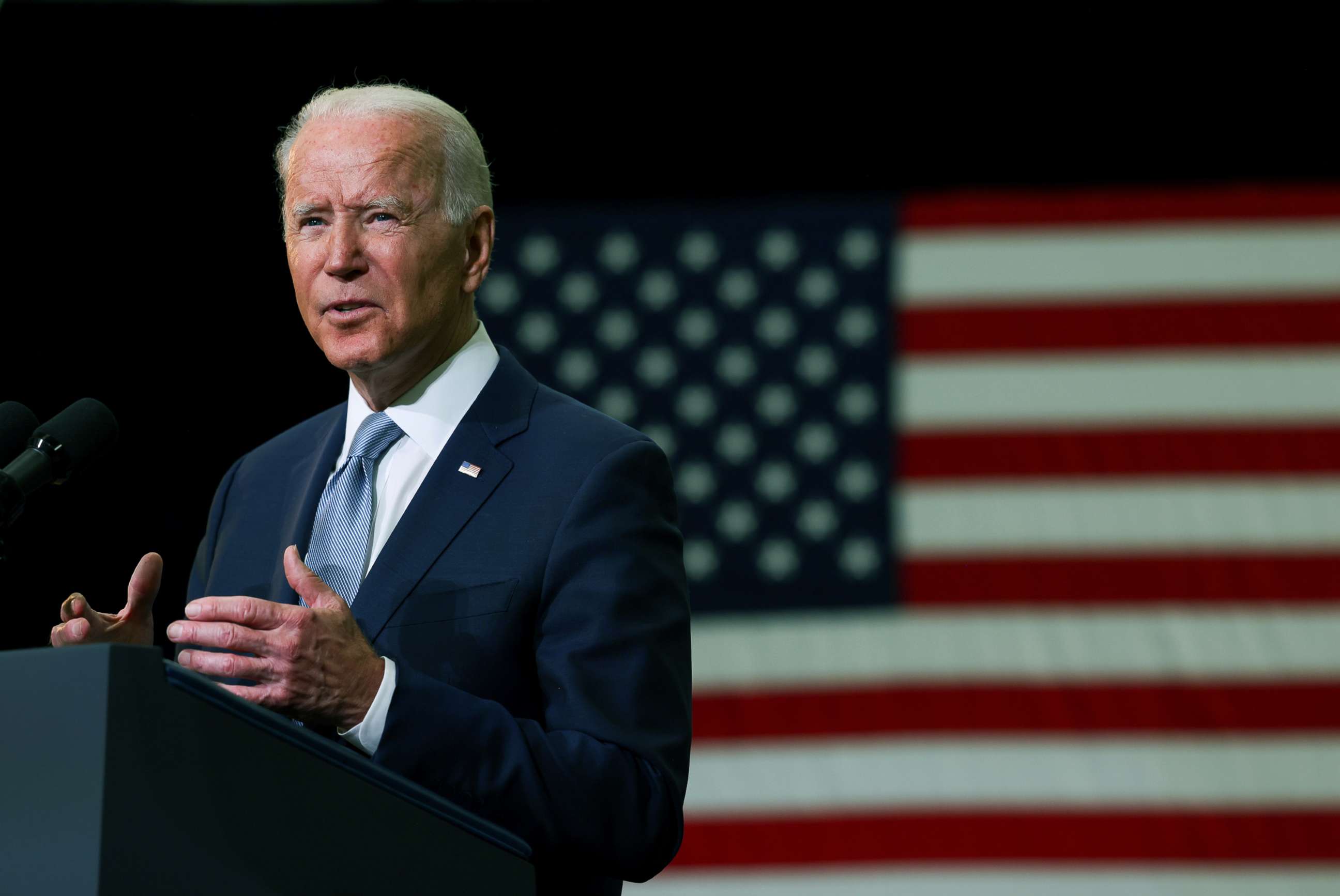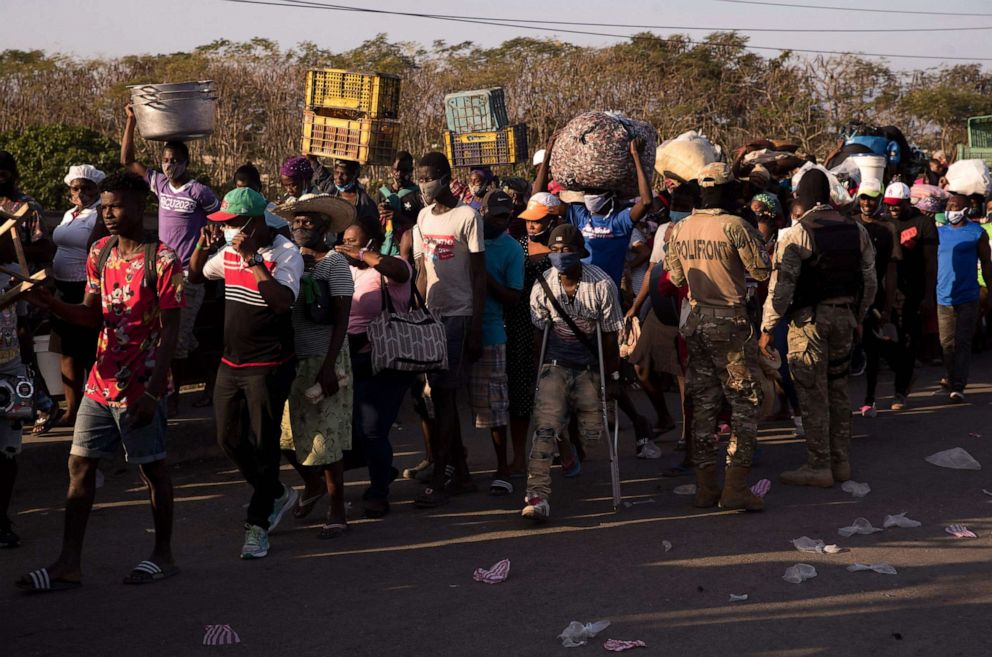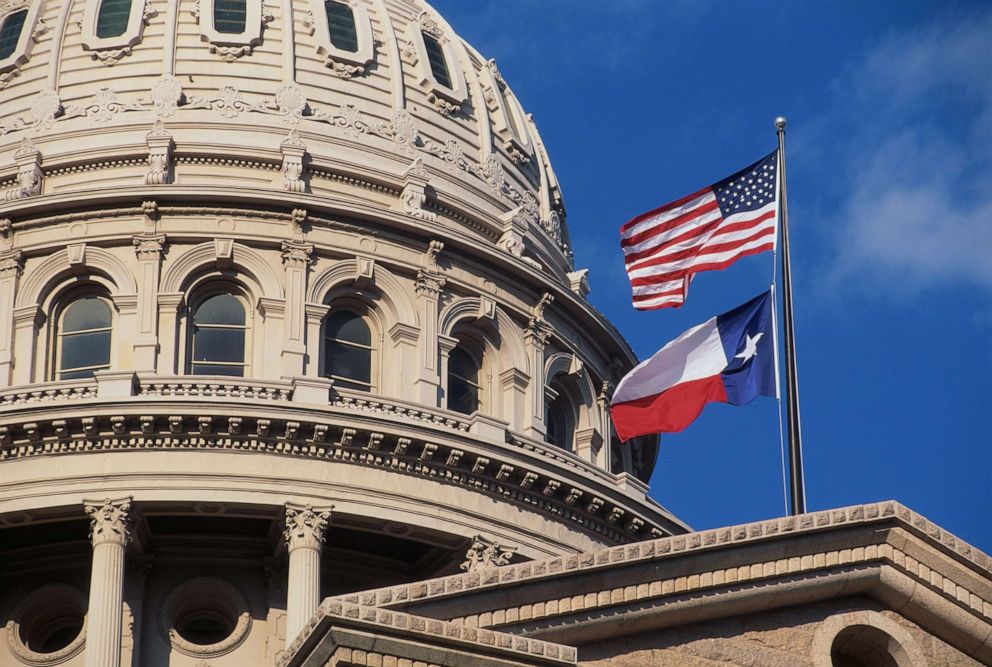Biden rejoins voting-rights push as Democrats lose ground: The Note
The fight over voting rights resumes in earnest on Thursday.
The TAKE with Rick Klein
Amid all the areas that the Biden White House can claim victories or at least progress -- from the pandemic and the economy to infrastructure, in its multiple dimensions -- the one that is by Democrats' own definition most fundamental may be the farthest from the list.
The fight over voting rights resumes in earnest on Thursday and Democrats are continuing to lose ground. Texas begins a special legislative session where new voting restrictions are the top agenda item, a week after the Supreme Court seemed to give a green light to Republican lawmakers there and beyond.
Both President Joe Biden and Vice President Kamala Harris mark the day meeting with civil rights leaders and speaking publicly on the urgency of action, with the Democratic National Committee dedicating fresh resources to the fight.

But as Republicans have been showing in state after state, the time for redoubled commitments and ad campaigns is passing. For all the scrutiny surrounding the issue, Democrats have had remarkably little success in stopping them in places that the GOP is in control.
And despite united control of Washington, Democrats in Congress have nothing at the federal level that has a realistic chance of getting to Biden's desk. Even the John Lewis Voting Rights Act, a far more modest bill than the "For the People Act," "will not be ready until the fall," House Speaker Nancy Pelosi told her members last month.
Biden has said repeatedly that there is no more critical priority for him than making it easier to vote -- and stopping efforts that make it harder.
If, as Biden said last week in response to the Supreme Court ruling, "democracy is on the line," his challenge will be to find actions that can meet that moment. Republicans aren't waiting for his party to catch up.
The RUNDOWN with Averi Harper
The assassination of Haitian President Jovenel Moïse has sent shockwaves around the world and prompted fears of greater instability in the island nation that could have an impact here at home.
In late May, Homeland Security Secretary Alejandro Mayorkas announced a new designation for Haiti for Temporary Protected Status, the humanitarian program that gives legal status in the U.S. to a country's nationals if there is an ongoing armed conflict, natural disasters or an epidemic, or other extraordinary circumstances. The 18-month designation only applied to Haitian nationals already in the United States prior to the announcement.

According to the Department of Homeland Security, "those who attempt to travel to the United States after this announcement will not be eligible for TPS and may be repatriated."
The White House issued a statement Wednesday calling Moïse's assassination a "heinous act" and saying, "The United States offers condolences to the people of Haiti, and we stand ready to assist as we continue to work for a safe and secure Haiti."
Haitian Ambassador to the U.S. Bocchit Edmond called for security and investigative assistance in the aftermath of the killing, but humanitarian needs will persist as well.
There's been no word from DHS on whether the agency will amend its TPS designation to allow legal status for Haitians fleeing violence amid the political crisis, but a spokesperson told ABC News the agency is closely monitoring conditions on the ground.
The TIP with Alisa Wiersema
The special session in Texas kicks off Thursday right where it left off -- with state legislators at odds over "election security."
In a tweet previewing the first few days of what is sure to be a tense 30-day period, Lt. Gov. Dan Patrick, who presides over the Texas Senate, said the legislature is "ready to pass all of the legislation on Gov. Greg Abbott's Special Session" and that hearings over the new election bill will begin over the weekend.

Amid intraparty challenges ahead of next year's gubernatorial election, the Texas governor is leaning into emerging national culture wars by putting issues like critical race theory, abortion-inducing drugs, social media censorship and trans-youth participation in sports on the special session schedule. Many of those items are likely to be echoed north of Austin over the weekend at the Conservative Political Action Conference in Dallas where former President Donald Trump is expected to deliver remarks.
To the likely relief of Texas lawmakers, agencies and their staff, the governor also included the directive to take up reinstating funds he vetoed under Article X in response to Texas House Democrats breaking quorum to kill SB7 in May. If left unaddressed, the veto would effectively defund the state's government as of Sept. 1.
THE PLAYLIST
ABC News' "Start Here" podcast. Thursday morning's episode features ABC News' Lionel Moise, who tells us what we know about the assassination of Haiti's president. ABC News' Alex Perez joins us from Chicago, where three more law enforcement officers were shot amid a violent summer. And science journalist Tara Haelle explains how mRNA vaccines could soon help fight other diseases beyond COVID. http://apple.co/2HPocUL
WHAT YOU NEED TO KNOW TODAY
Download the ABC News app and select "The Note" as an item of interest to receive the day's sharpest political analysis.
The Note is a daily ABC News feature that highlights the key political moments of the day ahead. Please check back tomorrow for the latest.




